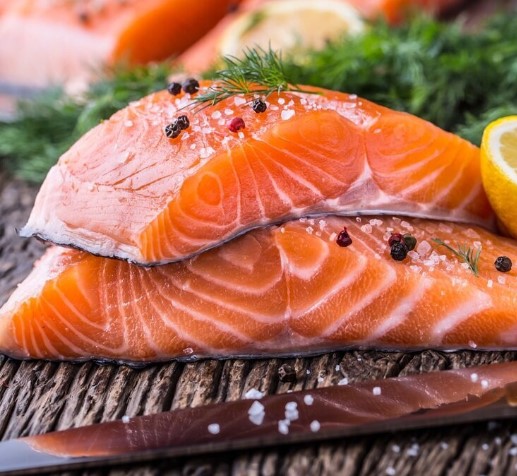antibiotics in fish

Photo is illustrative in nature. From open sources.
Fish is one of the most popular and healthy foods. It is rich in protein, vitamins and minerals, and also contains fatty acids that have a beneficial effect on the health of the heart and blood vessels. However, do fish contain antibiotics?
It is believed that fish may containantibiotics that are used to treat fish diseases. This is of concern to some people because they fear that eating such fish could lead to antibiotic resistance or even poisoning.
Is it true? What is the reality?
In fact, the use of antibiotics in fish farming is a widespread practice. This is done to prevent and treat fish diseases that can lead to massive fish mortality and significant economic losses for fish farmers.
However, the use of antibiotics in fish farming is strictly controlled by law. In most parts of the world, there are strict rules and regulations that govern the use of antibiotics in fish farming. For example, in the European Union, the use of antibiotics for fish growth is prohibited, only for the treatment of diseases.
In addition, fish containing antibiotics undergoes strict quality and safety checks before being released to stores. In most cases, the level of antibiotics in fish does not exceed the permissible norm.
It is also worth noting that eating fish that contains antibiotics does not lead to the development of antibiotic resistance in humans. This is because the antibiotics used in fish farming are different from those used to treat humans.
In conclusion, we can say that the use of antibiotics in fish farming is a common practice, but is strictly controlled by law and does not pose a threat to human health. Fish remains a healthy and nutritious food that can be eaten with confidence in its safety and quality.
Read together with it:
- My parents' behavior during quarantine made my husband angryWhen my whole family found themselves in self-isolation, I was somewhat happy. There was never enough time to rest,communication with children. And household chores have piled up.Once the shock of fear of the coronavirus had worn off a bit, we enjoyed doing nothing. But the idyll didn't last long, a...
- My husband reproaches me for being on maternity leaveMy husband openly reproaches me for being on maternity leave. The initiative to have a child was entirely his. He was initially looking for a woman to start a family, have children with, and he found me. Already in the first year of marriage he was worried that there were no children for a long time...
- I betrayed my friend and I don’t know how to make amendsBetrayed a close friend, one might even say a kindred spirit. Her name is Vika.We met in the 6th grade (I transferred to another school). At first I didn't really like her, and she didn't like me either, but gradually we got closer and by the 8th grade we were already getting along great, and by the...
- If your mother-in-law is an energy vampireI ask for advice and help in communicating with my motherhusband . She is a good person, she hasn't done anything bad to me. She has never offended me, she hasn't gossiped behind my back. But it is very difficult for me to communicate with her, as if she is sucking the strength out of me. She consta...
- Jealous guyI always wanted to have one like thisa guy who would keep me close to him, who would know everything about me, who would take care of me all the time. In general, I wanted my guy and I to have a complete unity of souls. Like twins. Or let there be a guy who will keep my "inadequate artistic" nature ...
- Now I know what happiness looks likeI was born into a large, poor family in a small provincial town. Parents alllife fought for survival. In the 90s this was the norm. Parents always believed that a person must have a higher education, and they tried in every possible way to give all their children the opportunity to study at a univer...
- My husband was disappointed in me and asked for a divorceI thought for a long time whether to write here or not, but suddenly my story will help someone. After readingconfession “I had an abortion and don’t regret it” and numerous comments to it, I want to write my story.Now I'm completely alone. Yes, I have a higher education in the specialty in which I ...
- An untold toast to my future mother-in-lawMy boyfriend and I have been dating for 4 years. He is currently in the army, but I am in contact with his parents. And since my parents are divorced, I often call his mother. She is, of course, a person with a difficult character, and before this incident we still had conflicts and misunderstanding...
- I'm afraid I'll never get marriedI'm 25 years old and I'm afraid I'll never be in a relationship. There was never a relationship, for various reasons. Sometimes I loved, but I didn’t, and vice versa. I’ll say right away that for me the expression “old maid” is not true.the girl who wasn'tnever married , and the one who doesn’t know...

